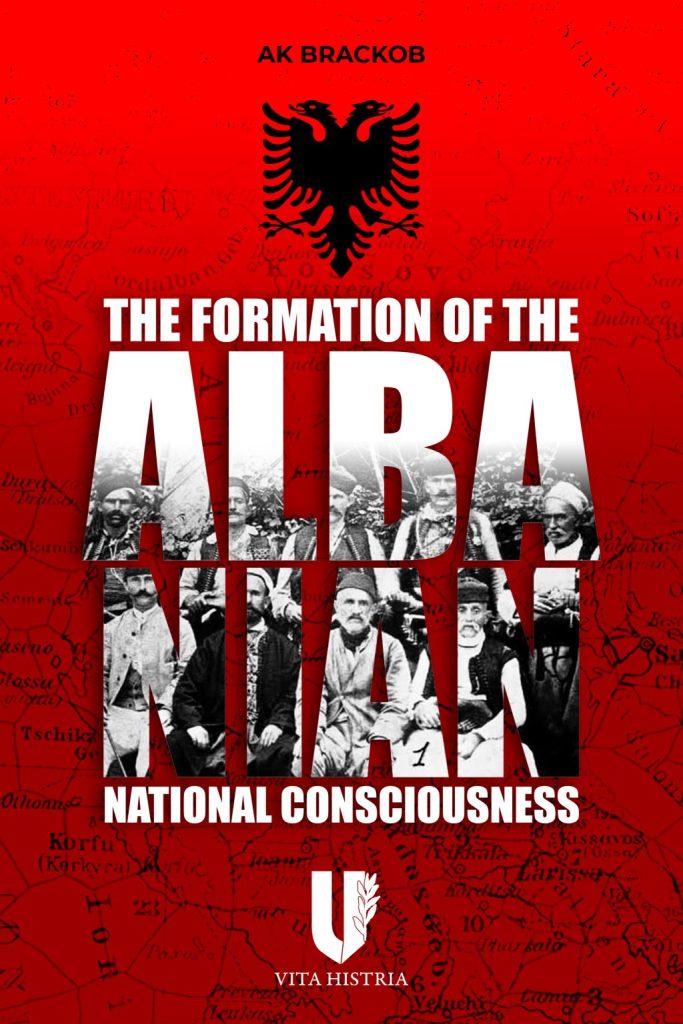







Please follow us on Gab, Minds, Telegram, Rumble, GabTV, Truth Social, Gettr, Twitter
As the multi-national Ottoman Empire began to fall apart in the aftermath of the Russo-Turkish war of 1878, the Albanian people faced the peril of being absorbed into the surrounding newly formed nation-states of Southeastern Europe. Albanian leaders met at Prizren in 1878 to devise a strategy to defend their national rights. The Formation of the Albanian National Consciousness a new book by acclaimed historian A.K. Brackob explores the origins of this movement that ultimately led to the creation of the modern-day Albanian nation-state.
Had a national consciousness failed to develop prior to the crisis of 1878, the creation of the national movement that not only sought to protect Albanian lands against foreign annexation but also strove to unite the four Albanian vilayets (Ottoman Administrative Districts) into a single autonomous administrative unit would not have been possible. The development of a national consciousness during the decades preceding 1878 built the foundation for the national movement that culminated in the creation of the League of Prizren and ultimately led to the formation of the modern independent Albanian nation-state in 1912.
The Albanian national consciousness did not suddenly develop in response to the crisis of 1878. The Albanians are the descendants of the ancient Illyrians who inhabited the Balkan peninsula since pre-Homeric times. The antiquity of the people in their homeland is an important element in the Albanian ethnic identity as they are distinguished by being the oldest inhabitants of the peninsula and because they speak a language derived from ancient Illyrian, distinct from that of their Slavic and Greek neighbors. Only in the fifteenth century, however, did a sense of ethnic identity develop among the Albanians during their resistance to the Ottoman invasions. This resistance, led by George Castriota Scanderbeg, brought Albanians of various regions, speaking different dialects, together in a common struggle against foreign aggression. This struggle helped define the ethnic identity of the Albanians. In book VI of his Commentaries, Pope Pius II cites a letter ostensibly written by Scanderbeg and sent to the Prince of Taranto that helps to illustrate this sense of ethnic awareness...
To read more visit The Balkan.






